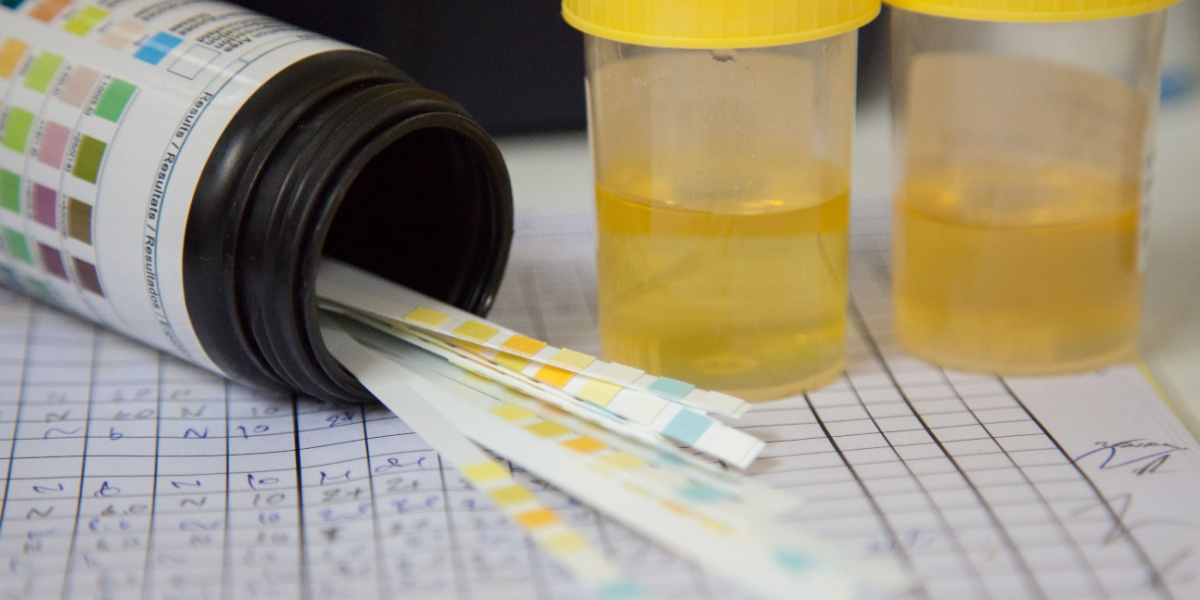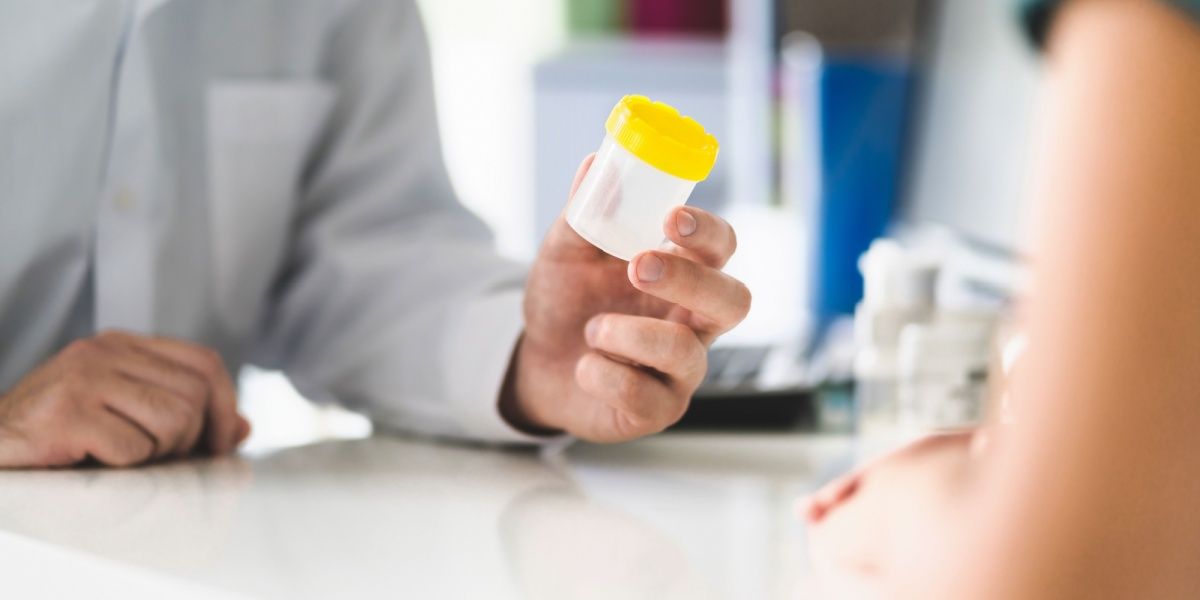Drug detox drinks are commonly used by individuals who consume drugs and alcohol to produce false-negative results in specific drug tests. These beverages contain natural ingredients and laboratory chemicals that hide or dilute the drug compounds. This article analyzes how detox drinks work, their risks, and the common substances they are used for.

What are drug detox drinks?
Drug detox drinks are beverages people consume to bypass detection from specific drug tests such as urine, blood, saliva, or hair testing. Drug detox drinks come in many forms and have variations specifically designed for meth, marijuana, cocaine, and other commonly tested substances.
Drug detox drinks act in various ways, from hiding the presence of drugs to destroying them in the specimen or interfering with substances used in laboratory testing.[1]
How drug detox drinks work
Drug detox drinks have substances that can mask, decrease the concentration, destroy, or interfere with drugs and testing agents in a person’s system.
Different types work in different ways:
- Sample diluents or adulterators: These drinks either decrease the concentration of drugs inside the body below the detection threshold or prevent drugs from interacting with testing agents. Some examples are the most common detox drink brands, such as Goldenseal, QuickKlean, or Mary Jane Super Clean.[2]
- Oxidizing adulterants: These substances oxidize the drugs or their metabolites, thus hindering their interaction with drug testing. It is a prevalent category of detox drinks used for passing urine drug tests. Other oxidizing agents interfere with the reagents used in drug tests. [1][3] Typical oxidizing adulterants include nitrites, pyridinium, chromium, bleach, and peroxide.[1][3]
Multiple laboratories have devised specific testing to recognize the presence of these drinks within drug tests and, therefore, preclude adulterated specimens.[2][3]
The dangers of drug detox drinks
Drug detox drinks can pose severe adverse effects. Because these beverages are unregulated, their efficacy is questionable, and their manufacturers may create them mixed with unlisted illegal and dangerous ingredients. They may also be produced without having undergone pasteurization to eradicate harmful bacteria.[4] These negative effects are specifically hazardous to people with weakened immune systems due to prolonged substance abuse, age, or chronic illness.
Below are some side effects found to be caused by certain drug detox kit ingredients:
- Drug detox drinks also contain diuretics and laxatives, which promise to flush the harmful drugs from people’s bodies through urine or feces. Ingesting large quantities of these substances may have mild to moderate effects, such as vomiting or diarrhea, and severe consequences, such as kidney dysfunction, heart disease, or requiring colon surgery.[4]
- Other studies indicate that intoxication with drug detox drinks may lead to psychosis, aggression, and liver dysfunction.[5]
- The ingredients in detox drinks have distinct risks. While alfalfa can lead to photosensitivity, burdock, dandelion, and echinacea can trigger allergic reactions. Cascara sagrada, cayenne pepper green tea, and turmeric can elicit gastrointestinal irritation while drinking large quantities of vinegar required to mask drug use causes violent diarrhea.[3][5]
- Ingredients that trigger hepatic, renal, and heart issues include creatine monohydrate, Guarana, and Reishi mushrooms. Additionally, Echinacea, creatine monohydrate, Guarana, and Uva Ursi can determine nausea, while red root determines central nervous system depression and narcosis.[5]
Another significant risk of drug detox drinks is being discovered through specific procedures. According to U.S. regulations, employees bringing tampered drug samples may be removed from their job positions, depending on their employer’s drug policy.[3]
Common substances people take detox drinks for
People who abuse substances will often attempt to cleanse their bodies of drugs with detox drinks before having to take a mandated drug test. Common examples of substances people take detox drinks for can be found below. Some ingredients typically used to bypass their drug tests are also listed accordingly.
Weed
Weed, cannabis, or marijuana are often tested for in most standard drug tests. As traces of marijuana stays in the system for up to 20 days, many chronic users attempt to detox their bodies before drug tests. The mixed legalization of cannabis across the US has made the validity of testing for it contentious though people will still often try to detox the drug from their bodies.
THC detox drinks
Some of the most common substances used to pass a weed detection test are:
- Bleach (a more effective urine adulterant) or table salt
- Ammonia and vinegar are potent ingredients in weed detox drinks
- Two quarts of herbal tea with goldenseal root along with hydrochlorothiazide may decrease marijuana metabolite levels to false negative results 22 hours after smoking marijuana cigarettes[6]
- Plain water[6]
Cocaine
Cocaine, or coke, is a highly addictive drug often tested for in standard drug screens. The presence of cocaine in the system can be noted for up to four days in urine, 48 hours in blood and saliva, and 90 days in hair follicles. Thus, many individuals with cocaine addiction seek ways to detox their bodies before a cocaine drug test.
Detox drinks for cocaine
People commonly use these substances to pass a cocaine drug test:
Benzodiazepines
Detecting the presence of benzodiazepines in the human body depends on the type of substance and test. While Valium stays in the blood for 48 hours and in the urine for up to six weeks, Xanax is only detectable for 24 hours in blood and 96 hours in urine for heavy users. The most common drug detection test for benzodiazepines is urine-based, which typically finds traces of these substances for up to six days after ingesting.
Detox drinks for benzodiazepines
Most detox drinks for benzodiazepines contain ingredients such as:
- Milk thistle, vitamin C, and B vitamins to eliminate toxins
- Bleach or table salt
Opioids
Opioids also have different detection periods. Traces of Percocet remain for up to 24 hours in the blood, two days in saliva, four days in urine, and 90 days in hair follicles. Conversely, heroin can be detected for one to three days in most urine tests, 6 hours in blood, and 24 hours in saliva.
Detox drinks for opioids aim to flush out these substances through urine, though most tests can signal the presence of these ingredients.
Detox drinks for opioids
Substances typically used to attempt to pass an opioid drug test are:
- Bleach or table salt
Amphetamines
Amphetamine is a common substance for both illicit and prescription-based drugs. The presence of amphetamine in the body depends on these drugs’ pharmaceutical composition. In the case of methamphetamine, this substance appears in tests for up to three days in blood, four days in saliva, and four to seven days in urine. Adderall, a prescription drug for ADHD made of amphetamine salts, is present for six weeks in urine, ten days in saliva, and 48 hours in blood.
Detox drinks for amphetamines
Amphetamine confirmation screening typically involves urine and blood tests, so most detox drinks for amphetamines include diluents or adulterators. However, amphetamine screening may notice these substances during the test, unless you are ingesting natural detox drinks, such as water or herbal tea.
Other substances used to mask amphetamines in drug tests are:
- Bleach or table salt
- Ammonia
Natural detox drinks
Natural drug detox drinks may be purchased or homemade with ingredients such as vinegar, vitamin C, herbal tea, goldenseal, salt, or niacin. Although having natural ingredients, they may still pose health risks, specifically when consumed in large quantities.
Other studies point out that natural detox drinks’ most common home ingredients include vinegar, ammonia, and table salt. Dangerous chemicals used in these drinks include bleach, caustic soda, detergent, and soap.[5]
While bleach is recognized as the most effective urine adulterant for THC, amphetamine, opioids, cocaine, benzodiazepines, and barbiturates, table salt is a much safer option for the same substances. Ammonia and vinegar are also potent ingredients in weed detox drinks, while ammonia may also mask the presence of amphetamine as part of detox drinks for meth.
Ensuring safety with professional detox programs
Drug detox drinks can be harmful to your body and can't remove the damaging impact substances have on the brain. After prolonged use of drugs and alcohol, dependence and addiction can form, and no amount of detoxifying drinks can remove the substance's effects on the brain.
Once dependence has formed, a medically assisted detox is often the only way to completely remove the substance from the body long enough for recovery to begin. Detox can be performed in either a residential rehab or outpatient treatment program or in some instances at home. For more advice on where to get detox treatment in your area, visit our rehab database or call today.


-blog-detail.jpg?v=1722513804)
-blog-detail.jpg?v=1722513816)
